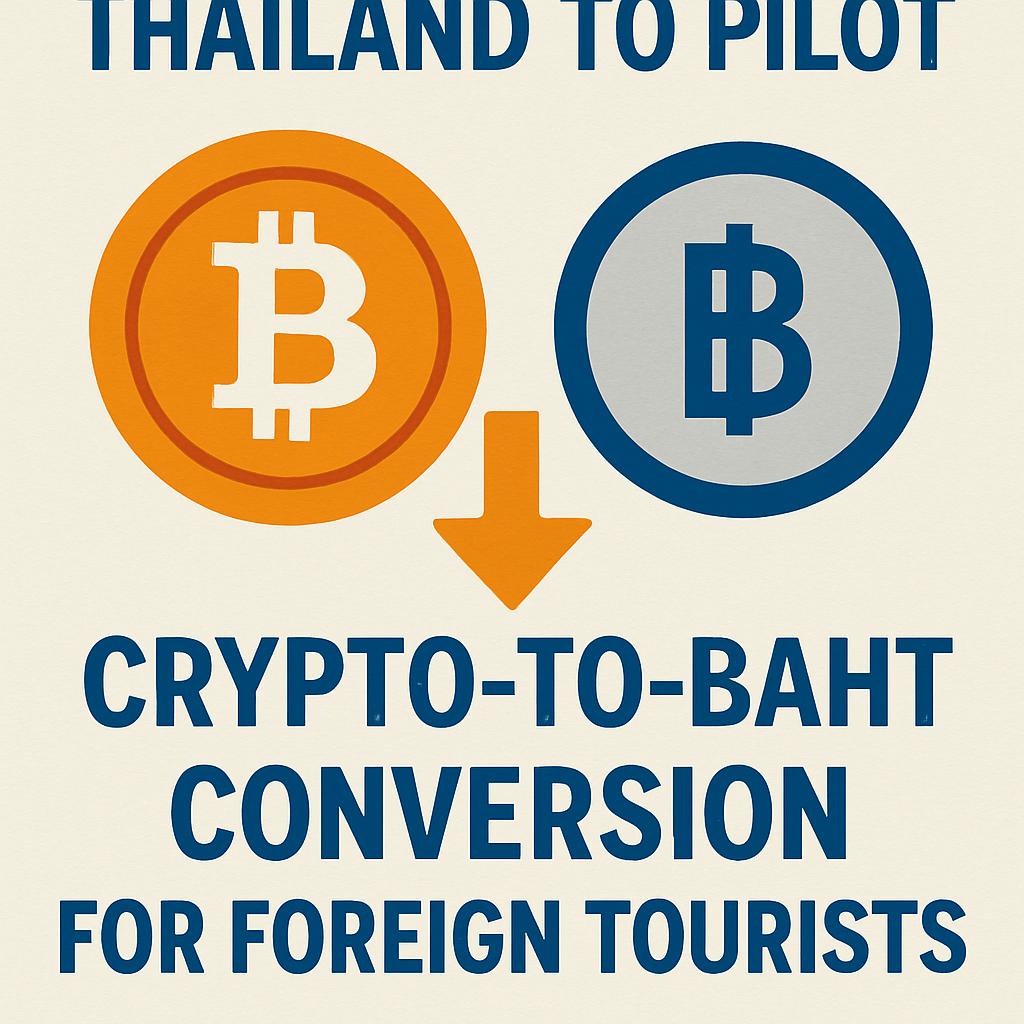Thailand’s Finance Ministry announced the launch of an 18-month pilot programme enabling foreign tourists to convert cryptocurrencies into Thai baht for local transactions. The scheme, set to begin later this month, will allow conversions up to a maximum of 550,000 baht (approximately $16,949) per visitor, as part of efforts to rejuvenate the tourism sector amid a decline in arrivals. Digital assets will be exchanged through licensed Thai crypto platforms, with baht credits issued to online wallet applications for payments at participating merchants.
Finance Ministry permanent secretary Lavaron Sangsnit explained that the cap is designed to prevent illicit flows while gathering data on usage patterns and compliance. The pilot will be reassessed at its midpoint, with conversion limits and participant criteria subject to adjustment based on regulatory reviews. Tourists will access the service via designated crypto exchanges, which will process transactions and transfer baht to approved mobile wallets. These wallets will be interoperable with local point-of-sale systems, simplifying crypto spending at hotels, restaurants, and retailers.
Finance Minister Pichai Chunhavajira said the initiative aims to increase early-stage tourist spending and capture a share of the estimated $60 billion tourism revenue Thailand generated in 2019. The state planning agency has lowered its 2025 foreign arrival forecast by 10% to 33 million visitors. By introducing digital asset conversions, Thailand seeks to differentiate its tourism offering and attract tech-savvy travellers. Officials will monitor anti-money laundering safeguards, transaction volumes, and market impact, coordinating with the Bank of Thailand and the Anti-Money Laundering Office.
The pilot comes amid growing global interest in digital asset payment systems. Southeast Asia’s second-largest economy has been developing regulatory frameworks for crypto businesses, including licensing for service providers. This programme represents the first state-endorsed initiative to integrate crypto conversions directly into everyday spending by tourists. Results will inform broader policy decisions on retail crypto payments and financial innovation. If successful, the scheme could expand to domestic users and higher limits, with possible integration into central bank digital currency trials.
International observers, including the IMF, have noted that regulated crypto payment schemes can offer efficiency gains while posing risks to financial integrity. Thailand plans regular reviews every six months to address emerging challenges. The pilot’s data will guide potential national rollout strategies, merchant adoption programmes, and interoperability standards for cross-border digital payments in the ASEAN region.

Comments (0)